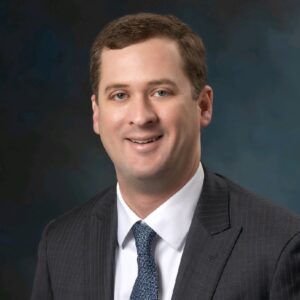Wilson Hunter: Reflection on History Major
Wilson Hunter ’07
 First of all, the history program, and more specifically, the Honors thesis program, helped me because Professor Epstein suggested that I look into a career as an attorney. He said, “you’d make a hellacious attorney.” I have no family history of law practice, so I had no prior reason to consider that career path. I took his suggestion and scored well enough on the LSAT that, with my Vanderbilt education, the University of Alabama Law School offered me a full tuition academic scholarship. I took them up on their offer.
First of all, the history program, and more specifically, the Honors thesis program, helped me because Professor Epstein suggested that I look into a career as an attorney. He said, “you’d make a hellacious attorney.” I have no family history of law practice, so I had no prior reason to consider that career path. I took his suggestion and scored well enough on the LSAT that, with my Vanderbilt education, the University of Alabama Law School offered me a full tuition academic scholarship. I took them up on their offer.
Second, the history program taught me to write at a high level. While law school attempted to undo much of that learning–legal writing, in my experience, is universally dreadful–I retained enough to continue writing at a high level once I entered federal service. My boss at the U.S. Attorney’s Office in Birmingham was notorious for his use of the red pen when reviewing his prosecutors’ writings. Federal judges are similarly picky, especially with search warrants. I was able to quickly acclimate to their standards due to the rigorous training I had received at Vanderbilt.
Third, Professor Lorge, Professor Bess, Professor Epstein, and others at the history department taught me to think critically, especially when it comes to deciphering narratives. As a federal prosecutor, the crucial questions in any criminal case are: truth/falsehood, facts and evidence, applying law to facts, and whose testimony to believe. Just as a historian must sift through contradictory eyewitness and secondary accounts (and secondary accounts posing as eyewitness accounts) to come to a conclusion about what really happened, a prosecutor has to figure out who has direct and credible knowledge about an event and present those witnesses to a jury to prove the case. And, as with historical accounts, sometimes you’re left with nothing but circumstantial evidence. I firmly believe that Vanderbilt’s history department prepared me to succeed and thrive in such an environment.
Finally, the history Honors Program particularly prepared me to marshal my evidence and defend my thesis against skilled and critical interlocutors. I tried a substantial number of federal jury trials in my time as a federal prosecutor, and I was successful in part because I was ready for my every assumption and contention to be challenged.
